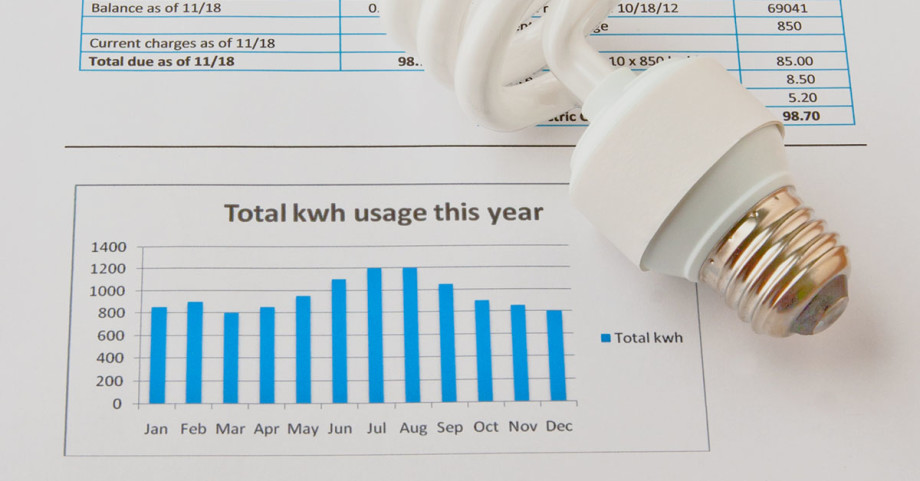5 Ways To Reduce Your Energy Bills

Energy bills can feel, well, inevitable. And oftentimes, they are. But paying for energy doesn’t have to break the bank. In fact, there are many ways that you can work to reduce your monthly payments. With these quick fixes, you may find yourself using and spending less, which is great not only for your wallet but for the environment too.
Check Your HVAC System
Your heating, ventilation and air conditioning (HVAC) system is probably one of the most used energy networks in your home. Because it runs almost all year long, the wear and tear it experiences is often more severe than any other system. The older your HVAC system gets, and the more it’s used, the quicker it becomes less and less efficient. And as the efficiency goes down, it has to work harder to keep your home at a consistent temperature, thus making your bill go up. Most HVAC systems last about 20 years, but different parts, like the A/C unit or the heater, can die out at different periods. Checking your system’s lifespan is key to ensuring that you’re only spending the energy you actually need to be spending.
Hack Your Windows and Door
Your windows and doors are areas in the home where air can escape the quickest. Depending on the season, your hot or cold air can seep out of cracks or holes in the lining of doors and windows. To be sure that your home stays at a consistent temperature, check your window panes and door frames for any potential areas of weakness. Additionally, investing in good sealant and proper insulation can help you out in the long run. While it may be a relatively large up-front expense, a properly insulated home keeps the hot or cold air in longer and can greatly lower your energy bills.
Switch Your Lighting
The lighting in your home is responsible for about 15% of your average electricity use. Switching your lights to LED versions can help reduce your energy costs by over $200 per year. Light emitting diodes (LEDs) are a type of lighting that convert electricity to light. They use almost 90% less energy than traditional lighting because the diodes that are used in these new bulbs are more power-friendly than the filament used in older bulbs. While the initial cost of an LED can be double the price of an older, less-efficient incandescent bulb, the money you save in the long run can nearly triple.
Change Your Appliances
- Every day each appliance you have plugged into your wall uses energy And if a majority of your household appliances aren’t energy-efficient, you may be spending more money than you need on your bills. Energy-star certified appliances can reduce your bills by up to 30% per month. Over time, those savings can pay for the appliances plus extra! Additionally, energy-efficient appliances are much better for the environment. They can help conserve finite natural resources, and reduce household pollution.
Update Your Laundry Habits
Washing your laundry in hot water is one of the quickest ways to consume excess energy. In the past, we have been told to wash our clothes with hot water to prevent color bleeding and cross-staining. But, recent experiments have found that washing clothes in cold water prevents them from leeching their colors and can help reduce your overall energy consumption. Plus, reducing your hot water consumption through laundry is infinitely more comfortable and convenient than switching to cold showers!
Adjust Your Behavior
Ultimately, our homes can only be as sustainable as we are. Human behavior is one of the leading causes of energy waste in modern times. Our lack of attention to forming more sustainable habits can be both damaging to the environment and costly to our bank accounts. Making smarter decisions like turning off lights when leaving a room, closing windows when the air is on, and unplugging smaller appliances like toasters or blenders when not in use, can save us money and energy over time.
Consider reading about: Plumbing problems in homewares
The Bottom Line
Energy-efficient appliances are a win for both your wallet and the environment. The up-front costs of making your home more efficient can be high, depending on how many appliances need changing, bulbs need replacing, and windows/doors need sealing. But, the long-term savings you’ll get from making these switches will pay for nearly all the up-front costs and will help reduce the impact you have on the environment.






One Comment